Recent angry protests by Israel’s Druze citizens are about much more than shekels, argues Daniel Klein. Druze MK Ghadeer Mreeh has warned the community finds itself ‘at a critical junction, questioning our position and future’. The Nation State Law and changes in Israeli political culture, not least the decline of liberal nationalism, have led to unease about whether Israeliness is being subsumed into Jewishness, and will leave the ‘brothers’ outside the family circle. Druze support for the Joint List roughly doubled to 20 per cent this March. ‘If Israeli leaders are to renew their relationship with the Druze, they must first abandon their complacency’ argues Klein.
Following warnings early this month by Druze council leaders that they are yet to receive 200 million shekels in urgent budget support promised by national government, Israel has seen a series of high-profile protests by the 150,000-strong minority across the country.
Having begun by blocking off the Elyakim interchange near the northerly Druze centre of Daliyat el-Carmel, by Sunday 10 May campaigners were making their case outside the Prime Minister’s residence in Jerusalem and hundreds had occupied Tel Aviv’s central Azrieli Junction.
The Druze economy, disproportionately dependent on the tourism and hospitality industries, and in which few work from home, has been exposed to special damage during Israel’s seven-week lockdown.
Spiritual leader of the Israeli Druze Sheikh Mowafaq Tarif and other community representatives were welcomed by President Rivlin on Monday 11 May, who emphasised the need for swift solutions: ‘We are committed to equal rights for all Israelis.’ But in the days since then the movement’s scope has only grown and its tone toughened. Daliyat el-Carmel mayor Rafiq Halabi led an attempt to shutdown traffic in Haifa, and accused the Israeli media of disregarding Druze grievances.
Deeper frustrations simmer beneath the short-term crisis. The pressures of the moment have simply highlighted pre-existing vulnerabilities and inequities, prompting an unexpected degree of anger.
The as-of-yet absent emergency funding was itself merely a sticking-plaster for the government’s failure to produce a five-year budget plan for Druze communities, as it has done for all others.
At Druze public gatherings in Israel it is typical to see Druze and Israeli flags waving side by side, and, sure enough, the star of David made an appearance at last week’s protests. But the visual language of patriotism cannot disguise a distinct cooling in Druze feeling towards the state in recent years.
The protestors’ slogans are instructive: ‘seventy years we’ve been told we’re brothers in arms! Why not brothers in the economy, brothers in life?’
For the Druze, warm and heartfelt good wishes from public figures have been easy to come by, but practical state action in support of their communities much less so. All the right sentiments are expressed, but their translation into policy has been arrested.
Military Brotherhood
In a message marking last month’s Druze celebration Ziyarat al-Nabi Shu’ayb, well-known Zionist educator Miriam Peretz, whose two sons were killed in IDF service, stressed that Jews and Druze were ‘brothers’ united by their ‘sacrifice’ and their ‘blood’. But as if to recognise the strain in the relationship, she wished above all that the Druze should feel as much a part of the nation as the Jews, sharing in their joy as well as their grief.
Indeed, activists on the Druze left have renewed their long-standing call for enlistment by the famed military minority, who serve at higher rates even than the Jewish population, to be made voluntary, as it is in the wider Arab sector. Ongoing government failings offer their argument a newly receptive audience. Given the IDF’s central institutional role in the story of Jewish-Druze solidarity – with defence cooperation stretching back to the Mandate era, and conscription having been in place since 1956 – any such change would signal a major Druze realignment in the direction of the anti-Zionist Arab mainstream.
Druze military service has always been based on a balanced formula of rights on the one hand, responsibilities on the other. The community contribute to the defence of the state, even risking their lives in loyalty to it, and therefore hold all the benefits of equal citizenship by right, and not by gift. But all-too-common stories of injured soldiers and police officers struggling to access state benefits produce a sense of imbalance: that more weight is placed on what the Druze community can do for the state, and less on what the state can do for it.
Slowly progressing changes to the Israeli political landscape have manifested themselves more boldly in recent years, disrupting previously dependable Druze political strategies. The super-patriotism embodied by the Druze Veterans Association and by former Likud cabinet member Ayoub Kara now seems incongruent with the times. After 2015 the hawkish Kara slipped rapidly down the Likud list and into irrelevance, marginalised in both his community and his party. He failed to be elected in the round of elections since 2019.
After long years of Likud-led rule, the civic nationalist glue holding together Israel’s different tribes has gradually given way to a more forthrightly Jewish nationalism. What Bernard Avishai terms the ‘Hebrew Republic’ – a secular, inclusive state primarily informed by Jewish culture and language – has rarely seemed less viable. Despite the rapturous celebrations that accompanied last month’s Independence Day, the Israeli state itself is trapped in a decades-long retreat, conceding ground to the private sector and to civil society.
From Israeliness to Jewishness?
And so, the traditional Druze approach of close engagement with state institutions – above all, the IDF – has foundered in a new environment where loyalties are more communal than national – or where the two are made synonymous. See, for instance, Prime Minister Netanyahu’s repeated references to the ‘Jewish majority’ as the crucial electoral metric, his bloc having narrowly failed to attain an absolute majority. If Israeliness is to be subsumed into Jewishness, the Druze will be left with no place to go.
Druze leaders have long referenced with pride their community’s high enlistment rates, but this service is of less use to their interests in an Israel increasingly beholden to private sector elites. Strategies that evolved under one set of circumstances will have to adapt to another.
This transformation tracks to the slow waning of the old Ashkenazi establishment, with the once dominant Labour party dying on its feet even in an electoral alliance. The failed Blue and White political insurgency, led as it was by a pick-and-mix of ex-IDF personalities, and advanced as much by lawfare as by electoral politics, was the last hurrah of a faction in decline.
Two big legislative moves of the twentieth Knesset (2015-2019) shook Druze perceptions of the state. In the years since, Druze activists have no longer been willing to repress their disappointments by comparison with the unenviable conditions of their coreligionists in Lebanon and Syria.
2017 Kaminitz Amendment
The first of these was the 2017 Kaminitz amendment to the Construction Law, intended to curb unlawful construction by increasing enforcement and penalties. Despite initial reassurance to the contrary, many Druze complain the measure has been discriminatory in application, strangling much-needed development in their remote, rural communities. Lengthy battles for construction permits compound the housing shortage and sustain the high Druze poverty rate. Although since 2016 governments have committed to new construction in the lower Galilee and expansion of Majdal Shams in the Golan, no new Druze towns have yet been founded in the history of the state.
Meanwhile, alleged under-funding of bomb shelters could have more directly lethal consequences. Druze villages are concentrated in the north of the country, towards which are ranged a hundred thousand Hezbollah rockets from across the Lebanese border, awaiting the say-so of IRGC patrons.
2018 Nation State Law
Second, and likely more damaging, was the 2018 Nation State Law. The addition to Israel’s Basic Laws, defining the state as the exclusive vehicle of Jewish national self-determination, was met with dismay by many Druze. Supporters insist the law is a symbolic, declarative expression of what has, in practice, been readily accepted by the Druze since Israel’s founding, and point out that it must be read alongside other Basic Laws guaranteeing the equality of all citizens. The law simply ties up a constitutional loose end, they say.
But for Druze critics, this is to minimise the importance of symbolism and the way it conditions and filters through to everyday life. The failure to include a recognition of the Druze contribution to Israeli national life, or the bonds of loyalty and shared endeavour between Druze and Jews, stood as a painful insult. The law, some feared, was a means of legitimising and cementing existing inequities, closing the door on future solutions.
The tumultuous argument surrounding its passage brought to the fore long-repressed ambiguities in Israeli Druze identity. Having long faced accusations of betrayal by Muslim and Christian Arabs, today many Druze feel themselves betrayed by the beneficiaries of their costly loyalty.
Of Promises and Coalitions
The theme of betrayal runs back from this month’s funding protests to the Nation State Law. The leader of a forum of Druze and Circassian councils Jaber Hamoud accused Netanyahu: ‘you betrayed us for a long time and particularly now during corona’.
Blue and White leader Benny Gantz, who garnered Druze votes with his commitment to amend the Nation State Law, is said to have betrayed his electorate by joining a Likud-led unity government following March’s inconclusive elections. Druze MK Ghadeer Mreeh, first elected for Blue and White in 2019, defected to Yair Lapid’s opposition in protest of the coalition agreement, repeatedly branding the Prime Minister ‘racist’.
She has since taken on a prominent role in the ongoing protests, stressing the goal of ‘equality’. In a fiery 2019 inaugural speech Mreeh challenged her colleagues: ‘Look at me, those of you who passed the nation-state law … am I not an equal enough citizen in the Jewish state?
’The country has developed, advanced, absorbed millions of new immigrants, but somehow we, the Druze, children of the land, who built this country together with the Jews, remain behind. Lagging in almost every domain.’
The Druze find themselves ‘at a critical junction, of wondering and questioning about our position and future’, she said, highlighting above all the disorientation of what once seemed a remarkably secure and confident minority in a region not famed for its tolerance.
Cultural Tensions
The sense of disorientation extends wider than the political arena, with the conservative Druze community undergoing cultural adjustments simultaneous to its political woes. Mreeh’s own career is a case-study; having previously been the first Druze woman to read the national news, she is now the first to serve in the Knesset. That degree of public exposure is in stark contrast to the traditional ideal of women’s domesticity, and Mreeh recalls initial community criticism.
The Druze publication el-Amama, based in Daliyat el-Carmel, whilst celebrating the achievements of the increasing number of Druze women attending universities, sounds a strong note of caution in defence of the ‘customs and traditions we inherited from our forefathers’. Although it seeks to play a full and equal part in the life of modern Israel, the community faces a challenge in how to do so whilst safeguarding its close-knit, strictly endogamous structure.
In a country dominated by two hostile narratives, Druze commentators also carve out their own small space of self-justification. Repeated efforts to emphasise the validity and historicity of the Druze presence in the land, despite the lack of explicit challenge to that history, betray a mounting insecurity.
The Golan Druze
The sense of being caught between worlds presents itself especially strongly with the Druze communities of the Golan. Native to the strategic plateau captured during the Six-Day War, and with enduring familial and emotional ties to Syria – Majdal Shams residents famously carrying on shouted conversation with relatives across the border – they have voiced resentment of developments, such as a recent wind farm project, advanced without adequate consultation.
Proximity to the border brings with it special challenges. Despite 2011 legislation mandating the clearing of land mines, Druze activists argue that progress has been slow, with dangerous mine fields, left behind by previous wars, still threatening safety and limiting land access.
Post-’67 generations of Golan Druze might more easily be integrated into Israeli society, but the process is hampered by the advancement of substance-less gimmickry – for instance ‘Trump Heights’, a new Golan community named in honour of the President’s recognition of Israeli sovereignty there – ahead of their own priorities.
Together all these issues have brought Druze concerns more into line with those of the Arab sector than ever before, just as that sector has successfully consolidated its politics via the Joint Arab List, overcoming previous ideological fragmentation. Its promoters likely now regret the 2014 increase in the threshold for election to the Knesset, which prompted a number of small Arab-affiliated parties to band together to form the identity-based mega-party.
Especially for the Druze left, the Joint List’s 2019-2020 electoral run provided an opportunity to protest against economic deprivation and discriminatory legislation. For others, it offered a protest vote against their alienation from the Israeli political family, as if to warn: ‘if you consider us outsiders, why shouldn’t we vote for an anti-Zionist party?’
In the event, Druze support for the Joint List roughly doubled from ten-percent last year to twenty this March. The party’s more or less explicit identification with Palestinians in the West Bank and Gaza, some of its representatives even defending terrorism, still place it beyond the pale for most Druze voters.
Indeed, Netanyahu’s refusal to compromise on the Nation State Law was offensive to many Druze exactly because it signalled that by virtue of their Arabic language and culture they were associated with Arab anti-Zionism, or even with the irredentist, terrorist politics of Fatah and Hamas – movements responsible for killings of Druze service-people.
But the Joint List’s surge to 15 seats has made Israel’s Arabs relevant in domestic politics as never before, producing hopes of moderation. Especially following the collapse of Israel’s ideological left, the Joint List is making the most of its opportunity to act as the unofficial opposition, even if it means working with the Zionist mainstream. The communist Hadash party especially, whose representatives include Druze MK Jabar Asakla, has promoted a strategy of greater Arab-Jewish cooperation.
Discriminatory Budgeting
And with the onset of this month’s funding crisis, yet another factor drawing the historically estranged Druze and Arab communities closer has been introduced. Parallel to the Druze protest movement, Arab councils began a general strike on Tuesday 5 May in response to receiving only 1.7 per cent of all emergency funding allocated in compensation for lost tax revenue during the coronavirus lockdown, despite accounting for roughly 20 per cent of the population.
The disproportion stems from councils only having been compensated for lost revenue from business property tax, and not that levied on private homes. In essence, the Arab-Israeli economy’s pre-existing weakness has led, counterintuitively, to its receiving less assistance rather than more. On Sunday 10 May Adalah – The Legal Center for Arab Minority Rights in Israel – petitioned the Supreme Court challenging the budget formula as discriminatory. And so, Druze communities will see their interests defended by Arab activism against harm imposed by the state.
Conclusion: time to abandon the complacency
Today Israel and her advocates abroad depend on the Druze as a gleaming example of integration, an Arabic-speaking minority enthusiastically reconciled to the justice of the Zionist proposition. At last month’s Independence Day ceremony, Druze Colonel Hisham Ibrahim was selected to light the IDF torch.
Druze contributions to the foreign service and to efforts to combat the toxic anti-Zionist antisemitism proliferating on Western university campuses are considerable too. Reda Mansour, a top-ranking Israeli Druze diplomat, has supported Israeli educational initiatives around the world.
Short-sighted policies that take Druze support for granted are not only unjust in themselves, but will likely harm wider Israeli society. And so, if Israeli leaders are to renew their relationship with the Druze, they must first abandon their complacency.
All in all, Israel faces a serious threat of generational change affecting all its Druze communities. Without addressing their concerns, those growing up in an atmosphere of greater alienation from and conflict with the state will be unlikely to make the valuable contributions to Israeli society that patriotic and self-confident Druze leaders do at present.

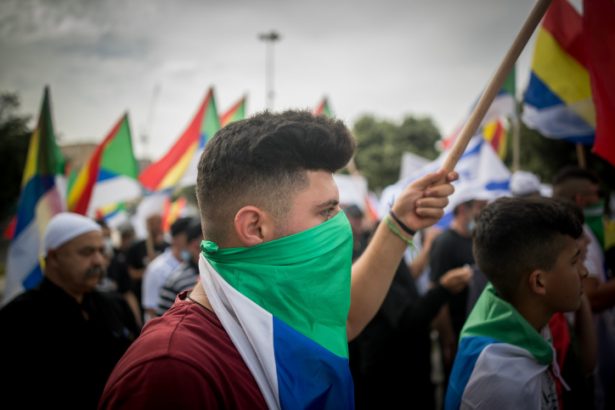

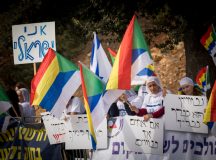
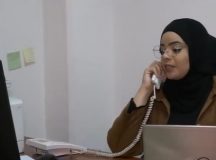
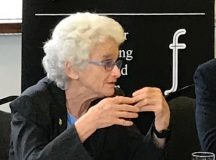
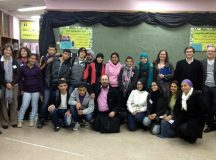































The nation law should be corrected. It must have a paragraph dealing with equality between ALL citizens – just like it appears in the Israeli Declaration of Independence.